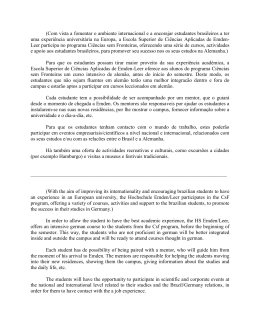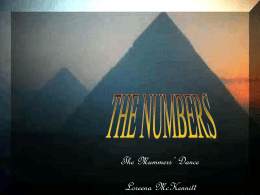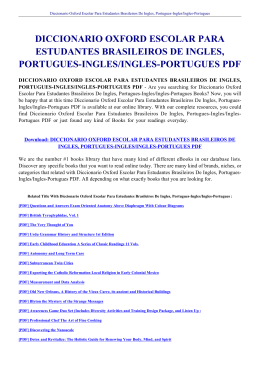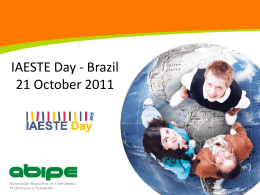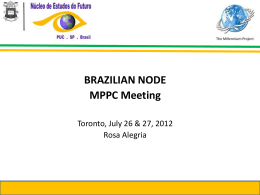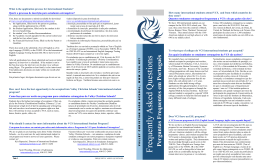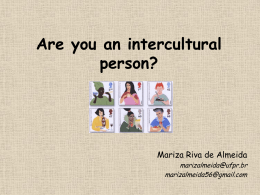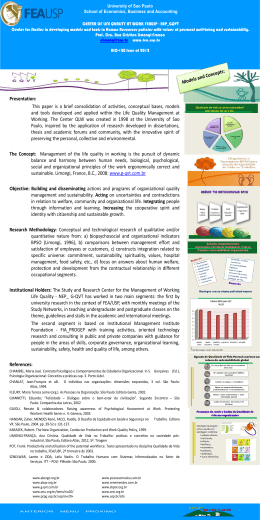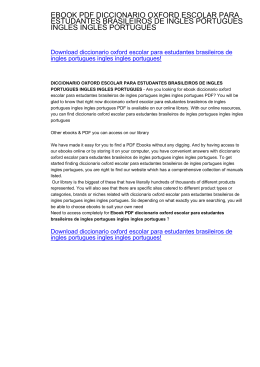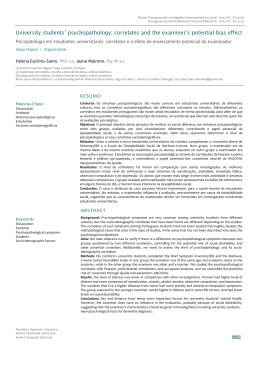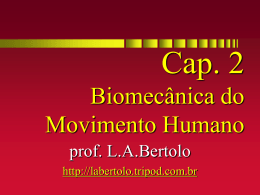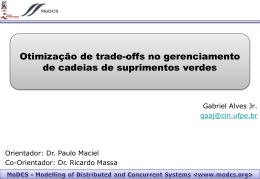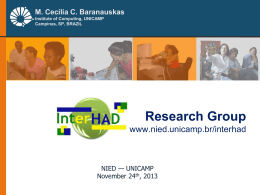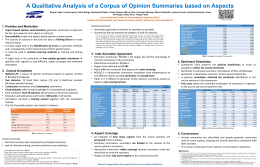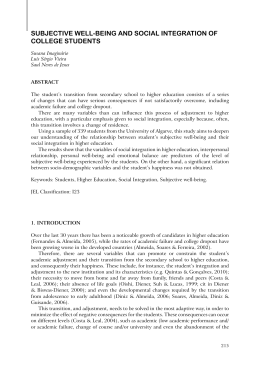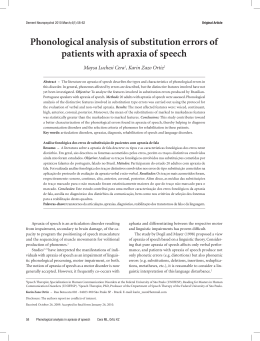SUBJECT PRONOUNS SUBJECT PRONOUNS SINGULAR PLURAL Eu - I nós – we Você - you vocês - you all o senhor- you (formal “sir”) os senhores- you (formal, male or mixed) a senhora- you (formal “m’am”) as senhoras- you (formal, female) Ele - he eles -they (male or mixed) Ela - she elas - they (female) What PRONOUN would you use to talk ABOUT Susana é estudante. --> Susana e Cláudia são estudantes. O Sr. Souza é professor. A D. Lúcia é professora. Roberto é estudante. Roberto e Carla são estudantes. Roberto e Pedro são estudantes. Roberto, Pedro e Carla são estudantes. yourself (I am) sou estudante. yourself e Ana somos estudantes Roberto, Pedro, Carla, Ana and yourself Ela é estudante. ________ são estudantes. ________ é professor. ________ é professora. ________ é estudante. ________ são estudantes. _______ são estudantes. ________ são estudantes. ________ sou estudante. ________ somos estudantes. ________ somos estudantes. What PRONOUN would you use to talk WITH your history prof (= you, sir) --> o senhor the Pres. of the University ________________ two classmates ________________ your doctor (a male) ________________ your best friend ________________ a child ________________ your Port. teacher ________________ you all ________________ VERBOS To conjugate a verb ending in “AR”, drop the “AR” at the end of the verb and add the following endings: I --> O | We --> AMOS you | They he A | You all AM she -ar Verbs Eu falo Você fala O senhor fala Ele/ela fala Nós falamos Vocês falam Os senhores falam Eles/Elas falam to study = estudar I study --> Eu estudo We study --> Nós estudamos You study ->Você estuda They study -> Eles estudam He studies ->Ele estuda You all study -> Vocês estudam She studies -> Ela estuda These are the “AR” verbs found in lesson 1: ESTUDAR FALAR (to speak) PRATICAR CONVERSAR TRABALHAR USAR TOMAR (to drink/take) COMPRAR (to buy) DANÇAR PREPARAR PESQUISAR (to research) ADORAR PROCURAR (to look for) FICAR (to stay, to remain) CUSTAR DESCANSAR (to rest) CAMINHAR (to walk) ANDAR (to ride) ESCUTAR (to listen) CHEGAR (to arrive) MORAR (to live) ALMOÇAR (to have lunch) JANTAR (to have dinner) GOSTAR (to like) ESTAR (to be in/on/at) – irregular verb PRECISAR (to need) COM QUE FREQÜENCIA? (with what frequency?, how frequently? SEMPRE / NUNCA (always, never) ÀS VEZES, MUITAS VEZES (sometimes, many times) TODOS OS DIAS (every day) TODAS AS SEMANAS (every week) FREQÜENTEMENTE RARAMENTE NOS (AOS) SÁBADOS, NOS (AOS) DOMINGOS NAS (ÀS) SEGUNDAS, NAS (ÀS) QUARTAS, NAS (ÀS) SEXTAS NAS (ÀS) TERÇAS, NAS (ÀS) QUINTAS, NO FIM DE SEMANA AO MEIO-DIA (at noon) À MEIA-NOITE (at midnight) Dizer com que freqüência você faz as seguintes coisas: 1. Eu (always) __________ estudo para os testes. 2. Eu (never) __________ estudo numa discoteca. 3. Eu __________ danço o tango 4. Eu __________ falo no telefone 5. Eu __________ escuto rock 6. Eu __________ janto num restaurante Atividades 1-16 1-17 WB – 1-9 Andar Amar Ajudar Dançar Beijar Cantar Trabalhar Cozinhar Fechar Comer Cair Abrir Até Amanhã!
Download
